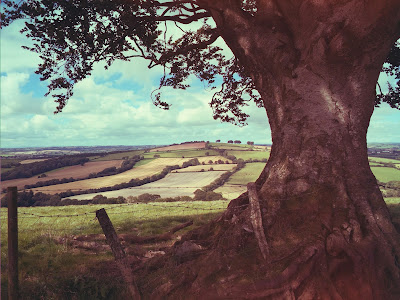Be ignited, or be gone — becoming freethinking mystics with hands
(Click on this link to hear a recorded version of the following piece)
—o0o—
A fuller unfolding of some of the key themes alluded to in this piece (and few others besides!) can be found at the following links:
The freedom to be tomorrow what we are not today—Part One: A Beginning
The freedom to be tomorrow what we are not today—Part Two: Becoming Free Spirits
The freedom to be tomorrow what we are not today—Part Five: A Short Postscript, June 2021
—o0o—
In 2015, one of the key texts which guided me as I put together the current liturgy which surrounds our time of mindful meditation was Mary Oliver’s short poem, “What I have learned so far” and, in a moment, I’ll read that for you. It stands as a powerful aide-memoire of what it is we are doing together each week; namely, practising a liberal religious discipline that is designed to help us grow ever more fully into what the Unitarian minister Tom Owen Towle described as “freethinking mystics with hands.”
The “with hands” bit is vital because here we are not practising a form of meditation that — through a process of becoming aware of, and paying attention to the world’s worlding — then simply stops at the making of “freethinking mystics” who can only talk eloquently, intelligently and intelligibly, about what we mean when we are speaking of wholeness, oneness, the ground of being and our sense of the sustaining sea. No, no, no! This is because the mindful meditation and the liturgy in which it is set are simultaneously aimed at igniting us so that when we leave this place we are better able, with a clean heart and full belief (pathos), to commit ourselves in a mindful way to using our hands — our whole being in fact — to labour for a better, fairer and more just world. A world that, in all its actions, expresses wholeness, oneness, the ground of being and a shared sense of the sustaining sea which, as Henry Bugbee (1915-1999) reminds us, “is bound up with the sense of communion with all the creatures swimming or floundering in it, as may be” (“The Inward Morning: A Philosophical Exploration in Journal Form”, University of Georgia Press, 1999, p.123).
This liberal religious discipline is one which is simultaneously political in that it seeks to reconnect us, not only with the mystery of being, and so help us find ways to begin to reconnect with the divine and re-enchant our very disenchanted the world, but also to reconnect us with that sacred energy which can truly help us begin to contribute to the well-being and running, not only of our local polis, that is to say our immediate, local communities, but also to the well-being and running of the cosmo-polis, the widest cosmopolitan community of all in which everything lives, moves and has its being.
And so, here is Mary Oliver’s poem:
What I Have Learned So Far
looking into the shining world? Because, properly
attended to, delight, as well as havoc, is suggestion.
Can one be passionate about the just, the
ideal, the sublime, and the holy, and yet commit
to no labor in its cause? I don’t think so.
story, all kindness begins with the sown seed.
Thought buds toward radiance. The gospel of
light is the crossroads of — indolence, or action.



Comments